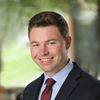Takeaways from the NAPLEX
In case you're unfamiliar, after you graduate with your PharmD you still have some big hoops to jump through if you want to become a practicing pharmacist. There are 2 tests that you still need to pass.

In case you're unfamiliar, after you graduate with your PharmD you still have some big hoops to jump through if you want to become a practicing pharmacist. There are 2 tests that you still need to pass. First, the North American Pharmacist Licensure Examination (NAPLEX) which covers the clinical aspects of pharmacy practice. Secondly, you must pass the Multistate Pharmacy Jurisprudence Examination (MPJE) in whichever state(s) you wish to practice in. The MPJE is the law exam which many pharmacists find to be more difficult since you cover those topics less frequently in pharmacy school. The NAPLEX is a 225 question exam that you are given 6 hours to complete. There are many questions that don't actually count towards your score which the National Association of Boards of Pharmacy (NABP) is using to evaluate questions for future use. If you plan on completing a residency or working in retail, there is likely a timeline by which you have to be a licensed pharmacist. My situation was a bit different. I went into a post-doctoral industry fellowship after I graduated from pharmacy school. Most fellowship programs do not require that you pass the NAPLEX. However, the majority of my preceptors, managers, and mentors suggested that I take the exam anyway, which was my plan from the beginning. Still, I'd be lying if I told you my motivation was high when it came to studying and prepping for the exam. As I discuss in my post on how to become a more consistent runner, it's hard to find motivation when there is no deadline or requirement for completion. This being the case, I still felt relatively confident walking into the exam room. I planned to cruise through the math questions and rely on what I remembered from school for the rest. Let me tell you how that went.
I'll start by saying that, yes, I passed the exam. As I look back on my experience, I have a lot of takeaways. Firstly, my exam was not what I expected it to be. Unlike many of the peers I have talked to, I had what felt like very little math on my exam. I would guess that I had fewer than 20-25 math questions in total. There may be some bias at play in my assessment. It's easy to remember the questions you found difficult rather than the ones you found easy. On the other hand, I had a ton of questions on HIV (which I found difficult). I would venture to guess that I had nearly as many HIV questions as I did math questions, which is not a standard experience. Of course, It's possible that a large percentage of the HIV questions didn't actually count towards my score.

Truthfully, the math questions on the exam are quite easy. You likely faced much harder questions throughout your college days, and high school calculus is definitely more challenging. Many people say that the math portion is what makes passing the exam an easy endeavor. The NAPLEX is supposed to be a "minimum competency" exam. However, as I walked out of the testing room all I could think was, "I guess I'm not minimally competent." I cannot tell you how many random questions I had that included brand-name drugs I've never heard of. That's saying something considering I have over 6 years of experience working in retail and hospital pharmacies. Luckily, there are still reasonable questions like how to create an insulin regimen for type-1 diabetics, treat hypertension, or approach community-acquired pneumonia which can be reliably answered if you did well in school or studied those topics. I just kept asking myself, "Where are all of the math questions!?" I committed many formulas to memory that I didn't use even once. For instance, I didn't have any pharmacokinetics or alligation questions. With that said, the math questions I did get were definitely easy and mostly consisted of converting weight-based dosing to an infusion rate like drops/minute. Again, there are a lot of potential mind games at play here. For instance, I'm used to trying to get A's on my exams (> 90%). Anything less in pharmacy school felt disappointing to me. On the other hand, the NAPLEX is a pass/fail exam. So it's possible that what I felt was a lot of random questions may not have been the case. This sentiment is shared by a lot of people online, and you can read about new PGY-1 residents panicking as they assume they've failed the exam. Overall, these are some of my recommendations if you are planning on taking the NAPLEX exam.
- Don't miss a math question: As I've said, the math questions are pretty easy, so you should make sure that you know how to approach each problem. It would be silly to miss out on these easy points.
- Study weak therapeutic areas: If you know that you're weak in certain areas like diabetes, hypertension, or infectious diseases then make sure you study those sections. In my experience, the topics that I already felt comfortable with from pharmacy school were easily dealt with on the exam without further studying. I don't expect your professors to say that you can just ignore topics you already feel good about, but schools rely on high pass rates. I'm just telling you what I did and what the results were. However, this approach must be taken with brutal honesty. Do not convince yourself that you're capable in a therapeutic area if you actually aren't. False confidence will catch up with you on this exam. I just ask myself if I would be comfortable rounding with a medical team and answering questions on any given therapeutic area, which I find to be a good gauge of competence.
- If you don't know the answer, just move on: In cases where I had no idea what the answer was, such as questions on how frequently a random drug I haven't heard of should be administered (2x weekly, weekly, once a month, or every 6 months?), I found it best to just pick something and quickly move on. There's no point wasting time contemplating an answer if you truly have no idea. Not to mention, this is a long exam! The less time spent staring at a computer screen the better. If you find these questions popping up frequently, which was occasionally the case for me, then preserve your sanity by telling yourself that they might not count towards your score anyways.
- Don't ignore "niche" areas like HIV or oncology: All I can say here is that I wish I spent more time studying HIV/AIDS. I definitely ignored tip #2 when it came to this topic. For about half of the HIV questions that came up, the best I could do was make an educated guess. That wasn't a comfortable feeling for me, and I was actually getting frustrated. To me, there was no reason for such a large percentage of a "minimum competency" exam to be dedicated to HIV. It's obviously an important topic, but ask any pharmacy student or technician how often they deal with HIV on a regular basis and I think you'll find that it's very little. Again, this is absolutely a combination of my bias, perception of what is important for all pharmacists to know, what topics are generally "looked up" in practice, and my lack of preparation, which I fully acknowledge. Still, I found it a bit frustrating. A friend of mine had a similar experience, but his topic of concern was fibromyalgia.
- Don't rely on other people's experiences: I don't want to take away from the value of my own post, but no exam is the same. Some people will get a lot of HIV questions, others will get 1 or 2. The same goes for oncology, fibromyalgia, and cystic fibrosis. It felt like I had very little math, but others have said that most of their exam was math-based case questions. You need to evaluate yourself honestly and prepare based on your assessment. What areas did you struggle in during school or on your APPE rotations? What areas do you excel in? For the NAPLEX, I studied about as much as I would for a therapeutics exam (a couple of weekends). I'm not saying that you should do that or that it would even work out. Like I've said, my lack of time committed to studying was mostly due to a lack of motivation and being busy with fellowship. Ultimately, it will come down to what you retained from school, how you assess yourself, and how you adjust to make up for your weaknesses.

